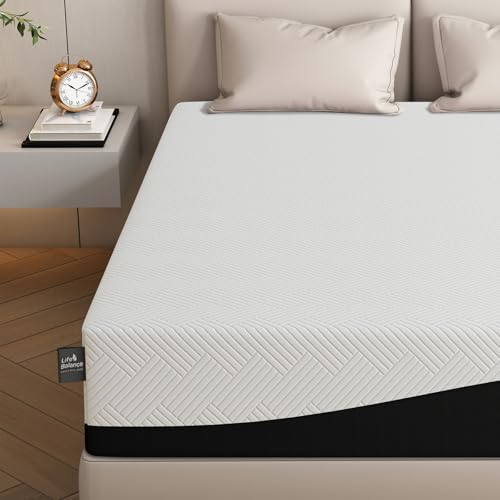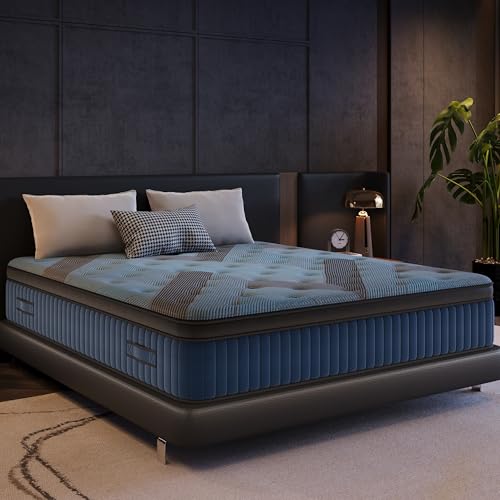Finding the best firm mattress can transform your sleep quality and overall well-being. Whether you’re dealing with back pain, prefer sleeping on your stomach, or simply enjoy the supportive feel of a sturdy sleep surface, the right firm mattress provides the foundation for restorative rest that leaves you energized each morning.
Firm mattresses aren’t just about personal preference – they offer specific benefits that can significantly impact your sleep health, spinal alignment, and long-term comfort. Understanding what makes a truly exceptional firm mattress will help you make an informed decision that serves you well for years to come.
Understanding Mattress Firmness Levels
The Firmness Scale Explained
Mattress firmness typically ranges from 1-10, with 1 being ultra-soft and 10 being rock-hard. Firm mattresses generally fall between 7-8 on this scale, providing substantial support while maintaining enough comfort for quality sleep. Extra firm mattresses rank 8-9, offering maximum support for those who need it most.
The key is finding the sweet spot where your mattress provides adequate support without creating uncomfortable pressure points. This balance varies based on your body weight, sleep position, and personal comfort preferences.
Why Firmness Matters for Sleep Quality
A supportive mattress maintains proper spinal alignment throughout the night, preventing the aches and pains that come from sleeping in compromised positions. When your mattress is too soft, your body sinks in unevenly, creating stress points that can lead to discomfort and poor sleep quality.
Benefits of Sleeping on a Firm Mattress
Spinal Alignment and Back Support
The primary advantage of a firm mattress for back pain lies in its ability to maintain your spine’s natural curves. By providing consistent support across your body’s heaviest points – typically your hips and shoulders – a firm mattress prevents excessive sinking that can throw your spine out of alignment.
This proper alignment reduces pressure on your muscles, ligaments, and joints, often resulting in less morning stiffness and improved comfort throughout the day.
Enhanced Sleep Temperature Regulation
Firm mattresses typically promote better airflow compared to softer alternatives. With less body sinkage, there’s more space for air circulation around your body, helping regulate temperature and reducing night sweats that can disrupt sleep quality.
Durability and Longevity
Firm mattress benefits extend beyond immediate comfort to long-term value. The denser construction of quality firm mattresses often means they maintain their shape and support characteristics longer than softer alternatives, making them a smart investment for your sleep health and budget.
Best Firm Mattress Types and Materials
Memory Foam Firm Mattresses
Modern firm memory foam mattresses combine the pressure-relieving properties of memory foam with enhanced support through denser foam layers and zoned construction. These mattresses contour to your body while maintaining the firmness level needed for proper support.
Look for models with gel infusions or open-cell construction to address traditional memory foam heat retention concerns.
Innerspring and Hybrid Options
Traditional innerspring mattresses excel in the firmness category, offering responsive support and excellent temperature regulation. Hybrid firm mattresses combine pocketed coils with comfort layers of latex or foam, delivering both support and pressure relief.
The coil gauge and density determine firmness levels, with lower gauge (thicker) coils providing firmer support.
Natural Latex Firm Mattresses
Latex mattresses naturally tend toward firmness while offering responsive support that adjusts to your movements throughout the night. Natural latex provides excellent durability, temperature regulation, and resistance to dust mites and allergens.
Who Should Choose a Firm Mattress?
Sleep Position Considerations
Stomach sleepers benefit most from firm mattresses, as they need substantial support to prevent their midsection from sinking too deeply, which can strain the lower back. Back sleepers also find firm mattresses beneficial for maintaining proper spinal alignment.
Side sleepers may find very firm mattresses uncomfortable for their hips and shoulders, though a medium-firm mattress often provides an excellent compromise.
Body Weight Factors
Heavier individuals typically benefit from firmer mattresses that provide adequate support without excessive sinking. The additional body weight requires more substantial support to maintain proper spinal alignment throughout the night.
Existing Back Pain Issues
If you experience chronic back pain, a firm mattress might provide the support your spine needs to heal and recover during sleep. However, it’s essential to choose a firm mattress with adequate pressure point relief to avoid creating new comfort issues.
Shopping Tips for Your Perfect Firm Mattress
Testing and Trial Periods
Take advantage of mattress trial periods offered by most manufacturers. What feels firm in a showroom might feel different after several nights in your own bedroom. Many companies offer 90-365 night trial periods, allowing you to truly test whether a firm mattress works for your sleep needs.
Quality Construction Indicators
Look for high-density materials, reinforced edges, and quality certifications when evaluating firm mattresses. The best models combine firm support with thoughtful construction that addresses common concerns like heat retention and pressure points.
Budget Considerations
While affordable firm mattresses are available, investing in quality construction typically pays dividends in comfort and longevity. Consider the cost per night over the mattress’s expected lifespan rather than just the initial price tag.
Frequently Asked Questions
How do I know if a firm mattress is right for me?
Consider your sleep position, body weight, and current comfort issues. Stomach sleepers, heavier individuals, and those with back pain often benefit from firm mattresses. If you currently wake up with aches or feel like your mattress doesn’t provide enough support, firmness might help.
Will a firm mattress feel uncomfortable initially?
There’s typically an adjustment period of 2-4 weeks when switching to a firmer mattress. Your body needs time to adapt to the new support level. Most people find improved comfort and sleep quality after this adjustment period.
Can a firm mattress be too firm?
Yes, excessive firmness can create pressure points and discomfort. The goal is finding adequate support without sacrificing comfort. If you experience pain or numbness, your mattress might be too firm for your needs.
Do firm mattresses last longer than soft ones?
Generally, yes. The denser construction of firm mattresses often provides better durability and shape retention over time, though individual results vary based on materials and construction quality.
What’s the difference between firm and extra-firm mattresses?
Firm mattresses typically rate 7-8 on the firmness scale, while extra-firm models rate 8-9. Extra-firm mattresses provide maximum support but may be too rigid for many sleepers’ comfort preferences.
Making Your Firm Mattress Decision
Choosing the best firm mattress requires balancing support needs with personal comfort preferences. Consider your sleep position, any existing pain issues, and temperature preferences when making your selection. Remember that the right firm mattress should provide excellent support while still allowing for comfortable, restorative sleep that leaves you feeling refreshed and pain-free each morning.












